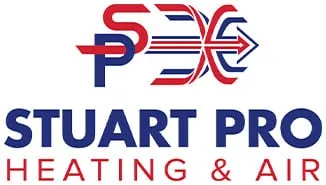What Does HVAC Stand For?
HVAC stands for heating, ventilation, and air conditioning. In this blog post, HVAC experts share a brief overview of HVAC for beginners. Heating, cooling, and ventilation maintain good indoor air quality and a comfortable environment. Homeowners should know at least these three things about HVAC systems to take good care of their HVAC systems. Having a general idea of how the HVAC unit works and how to take care of it can help homeowners protect their investment in the system.
What Does the HVAC System Do?
The HVAC system is essential for maintaining a comfortable indoor temperature year-round. There are many different heaters and air conditioners to choose from, but many have a similar function.
The thermostat controls the overall function of the heating and cooling system. Homeowners can turn their HVAC unit off/on and adjust the temperature via the thermostat. The thermostat triggers a reaction in the air conditioner or furnace to adjust the temperature. Central air systems then use ductwork to deliver air to different home parts from the furnace or air conditioner.

HVAC System Components
Ventilation refers to the circulation of air throughout the home. When the air in the house is too stagnant, dust and other airborne particles are breathed in and can cause respiratory problems. The ventilation provided by HVAC systems helps filter out airborne contaminants and keep the air smelling fresh.
An air filter is placed over the air intake of the HVAC system to prevent it from sucking in contaminants and recirculating through the ductwork. Opening up the windows and turning on ceiling fans is an example of how to ventilate the house without the HVAC system.
Air conditioners use an evaporator coil to remove the heat from the air before circulating it through the home. There is a refrigerant inside the evaporator coil that absorbs the heat. After the evaporator coil absorbs the heat, it is delivered to a condenser coil outside to be released.
Forced air heating systems blow air over a furnace’s heating element to create hot air. Boilers are an example of a home heating system. Boilers use hot water to make hot air for warming the home. Furnaces can be powered by oil, gas, or electricity. Heat transfer systems draw warmth from the outdoors and transfer it inside.

HVAC Maintenance
Changing the air filter regularly and scheduling routine maintenance checks with a professional goes a long way in keeping an HVAC unit running smoothly. During maintenance appointments, the technician will have a chance to inspect the unit for signs of damage and repair any small problems before they get out of hand.
Examples of maintenance that homeowners can do themselves include changing the air filter and keeping the area around the HVAC unit clean. Air filters are important for keeping dust and other debris from building up inside the unit and causing it to break down. Air filters are also important for maintaining good air quality by removing airborne particles of contaminants. Air filters must be changed roughly every three months or more if the home has pets or people with allergies
